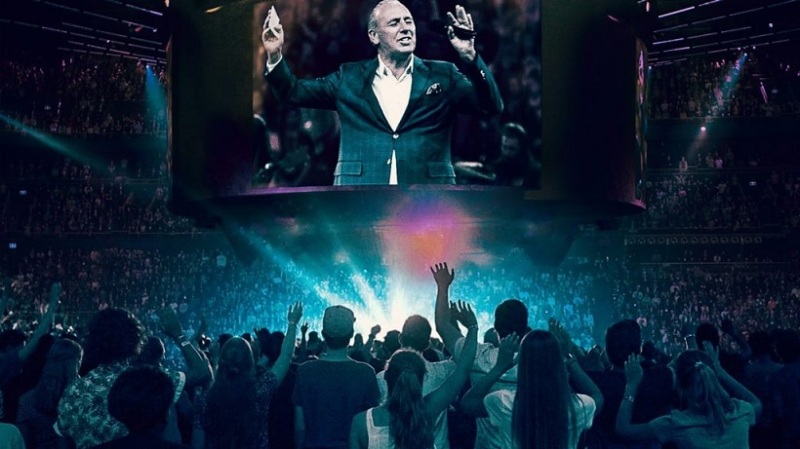
Hillsong Church criticized a BBC documentary over its negative depiction of the congregation.
Nick Aldridge spent two years creating the documentary, "Hillsong Church: God Goes Viral," beginning in 2017 and released on July 21. But in the official statement dated July 23, the congregation claimed that the majority of the film's content took the church "grossly out of context," The Christian Post reported.
Hillsong said that Aldridge asked for permission to capture footage, saying that the film will present "fair portrayal" of the church. However, it was not informed that the documentary will also feature some of its critics, whom the congregation said have made "baseless claims."
"While the filmmaker expressed to us that he felt pressured to shift the focus to more controversial storylines and to avoid painting our church in an overly positive light, we now question if this project was ever intended to be fair or balanced," the statement added.
"Much of the footage has been taken grossly out of context and sewn together to create storylines that simply do not reflect reality. Numerous other elements are either grossly exaggerated or intentionally skewed. Most of the footage that demonstrated the positive impacts of our church were relegated to the cutting room floor and erased from the final cut of the documentary," the church lamented.
"We strongly refute the many aspects of the film that fail to meet a basic level of journalistic integrity and a commitment to the truth," it further stated.
Further, Hillsong presented facts to clarify the various aspects tackled in the documentary, including racial equality, finances, Hillsong East Coast, volunteer policies and the Royal Commission's investigation of Frank Houston.
According to The Roys Report (TRR), the film contains clips from some of Hillsong's churches in the United States, United Kingdom and Australia. One of these clips showed the congregation's former youth pastor Daniel Blythe, alongside his wife, Charlie. TRR observed that the couple's embodiment of "Hillsong ethos of confident spirituality" to engage the youth "eclips[es] [the] focus on doctrine or discernment."
In addition to church founders Brian and Bobbie Houston, the film also presented interviews from former church members and staff who shared revelations about the church's issues. These include those from Megan Phalon and Elizabeth Hernandez.
Phalon was a former staffer who discussed about the pastors' financial misappropriation in the church's branch in New York, while Hernandez was a sexual assault survivor who rediscovered her childhood faith through Hillsong but has left the church without giving any reason.
TRR said that Aldridge exploited some of the subjects in the documentary with the way he crafted the narratives, like what he did with Pastor Brenden Brown of Hillsong San Francisco.
In the film, Brown reportedly shared about his children who are suffering from a skin disease but he was also shown praying for healing at a worship service - a scenario which the media outlet noted could raise questions over the minister's beliefs.
Aldridge was also denounced by Bob Barker of Hillsong U.K., saying that the filmmaker only "look[ed] for "sensational" issues in the church and did not "build an accurate, helpful picture."
The documentary is available for viewing for the next 11 months.




























